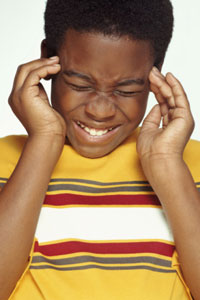A tension headache is one of the prevalent primary headache disorders and can occur once in a while or in a chronic manner. This type of headache is considered common and both adults and children have experienced one at some point in life.
Tension headaches are characterized as pressure or dull tightening on both sides of the head. In most cases, it starts at the forehead and spreads around to the back of the head and can last anywhere from 30 minutes up to 7 days. Unlike a migraine, a tension headache is not linked with vomiting or nausea and some have reported appetite loss.
Difference between a tension headache and a migraine
A tension headache is different from migraine but they can co-exist and oftentimes it can be tricky to differentiate between the two. A defining difference is that a tension headache will not occur with an aura similar to a migraine
Migraines are usually one-sided with a throbbing sensation while a tension headache feels muscular in nature and less pulsating. A tension headache can affect both sides of the head while migraines are localized on one side of the head.

The potential trigger for tension headaches are often unique for each individual. It simply means that what precipitates the headache might be different for another person. The common triggers include the following:
- Anxiety
- Stress
- Fasting or not eating on time
- Sleep deprivation
- Warm and cold temperature changes
Treatment
It is good to note that a tension headache typically resolves with simple over-the-counter measures such as exercise, food, sleep, caffeine and hydration. Some of the effective over-the-counter medications include the following:
- Acetaminophen
- Non-steroidal anti-inflammatory drugs (NSAIDs)
- Combination drugs of caffeine and acetaminophen
It is vital to consult a doctor first before using any medication including the over-the-counter measures to ensure that the one used is safe.
There are behavioral therapies that are oftentimes utilized alone or in combination with medications to prevent the tension headaches especially the chronic ones.
Preventive measures
Individuals who suffer from episodic tension headaches do not need any daily preventive medications. As for those who have chronic attacks, they can benefit from one to minimize the frequency and length of the episodes. One medication, specifically amitriptyline has been proven to be effective in the prevention of chronic tension headaches.
If an individual suffers from tension headaches, he/she should not get frustrated. This type of headache is common and usually managed effectively. A doctor should be consulted so that proper diagnosis can be given and the appropriate treatment can be started.
